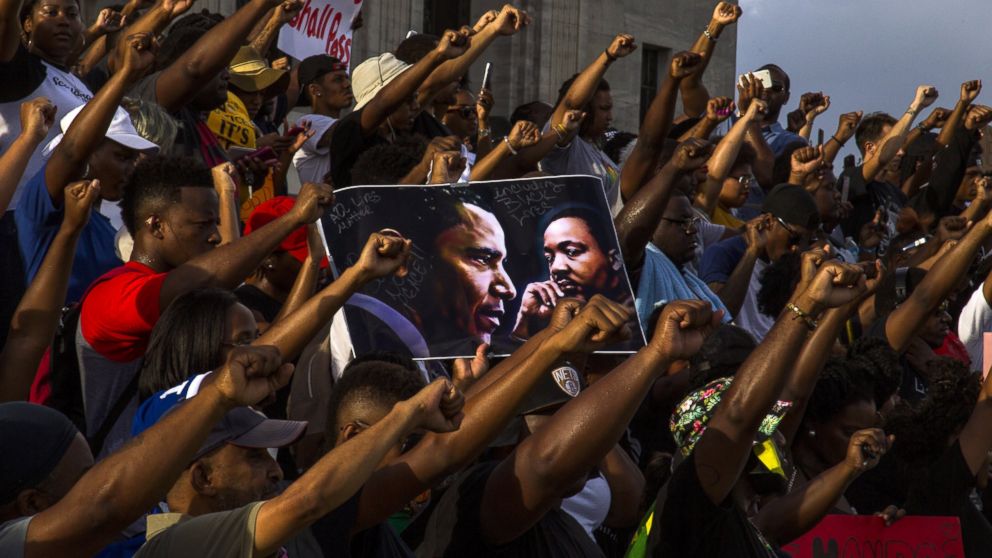Tipping Point? A Nation on Edge After Days of Protests, Hundreds Arrested
— -- Thousands of demonstrators took to the streets in major cities over the weekend to protest the killings of two black men at the hands of police, even as the country continued to mourn a brutal attack in Dallas that left five officers dead and nine others wounded.
The shooting deaths of Philando Castile in a suburb of St. Paul, Minnesota, and Alton Sterling in Baton Rouge, Louisiana, set off a tumultuous chain of events and ignited a fierce debate over police tactics and race relations that continues to roil communities across the nation.
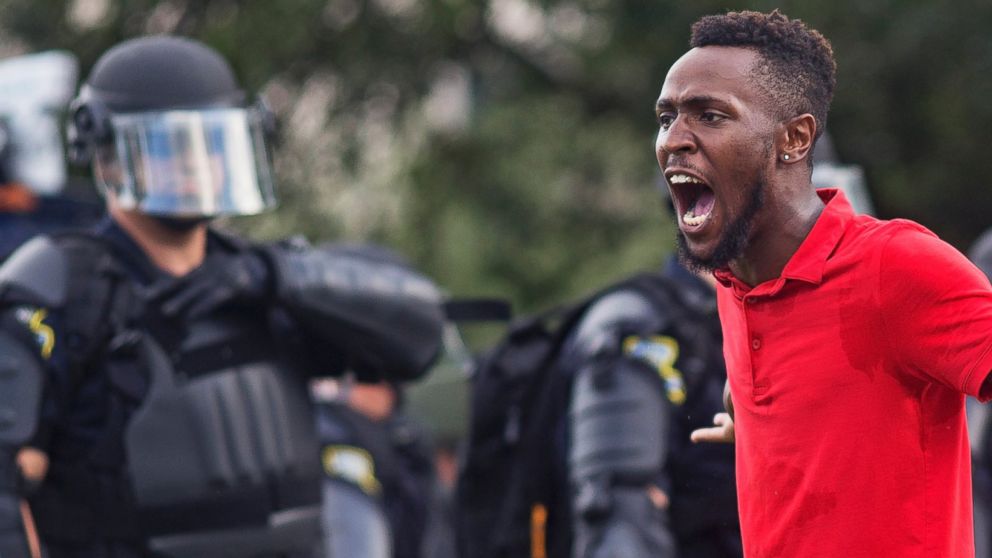
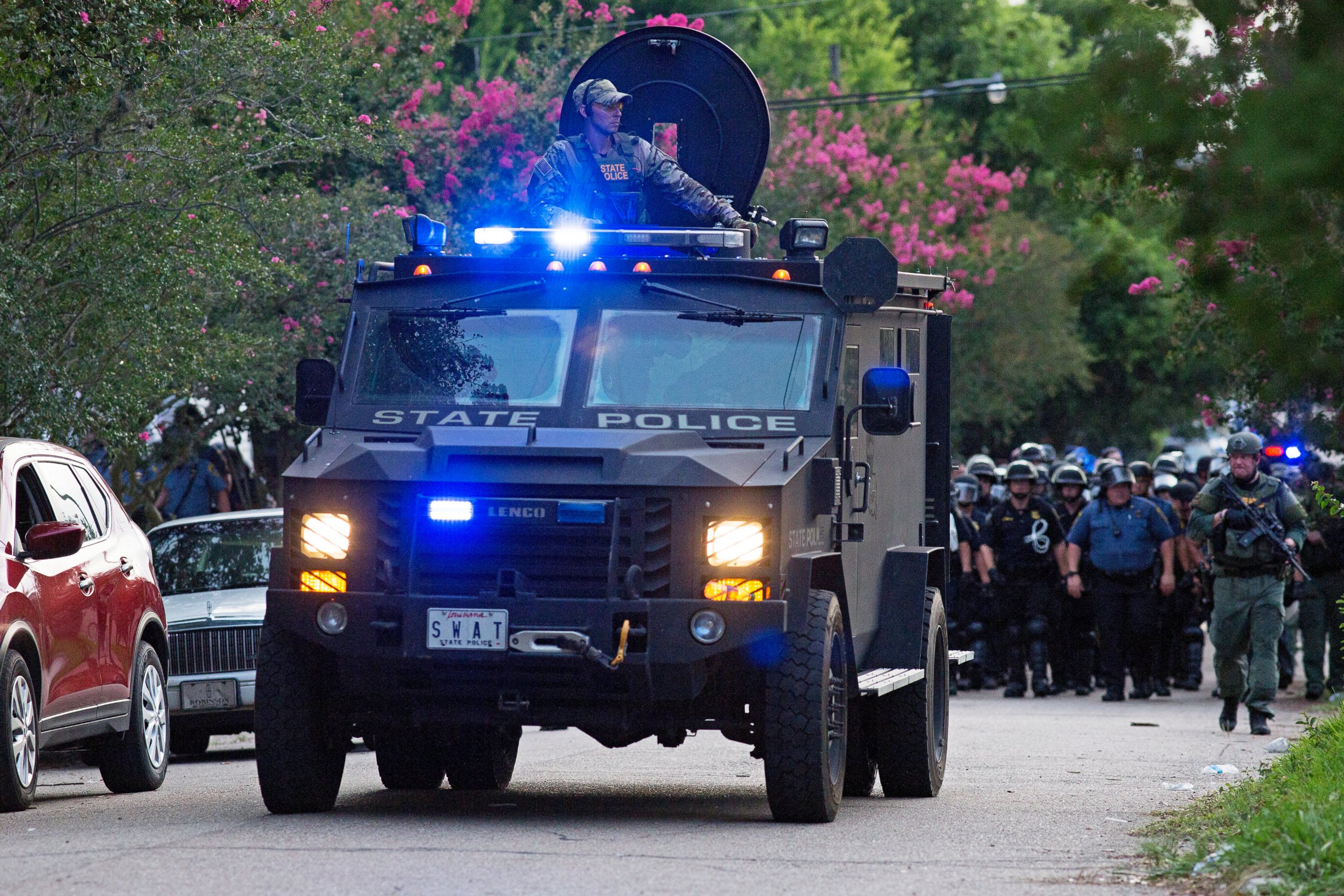
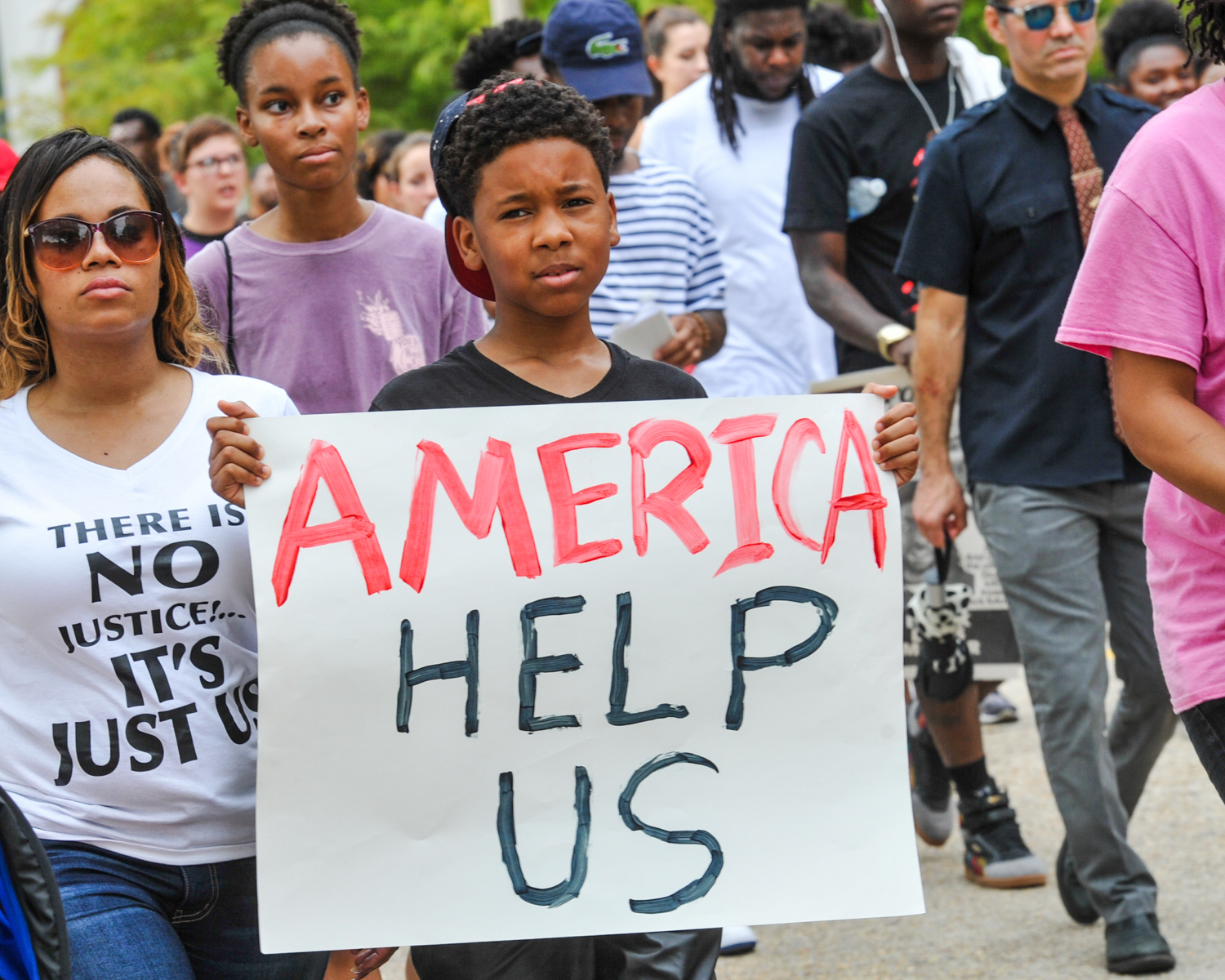
A call for peace as protests rage on
Police departments, protest leaders and politicians ranging from mayors all the way up to the president have called for peace as hundreds of protesters were arrested in a weekend plagued by civil unrest.
Intense and sometimes violent clashes erupted in several major cities. Overnight, police said, close to 50 people were arrested in Baton Rouge, and dozens of demonstrators marched down highways and blocked traffic at major intersections in Los Angeles, St. Paul, Atlanta and New York City.
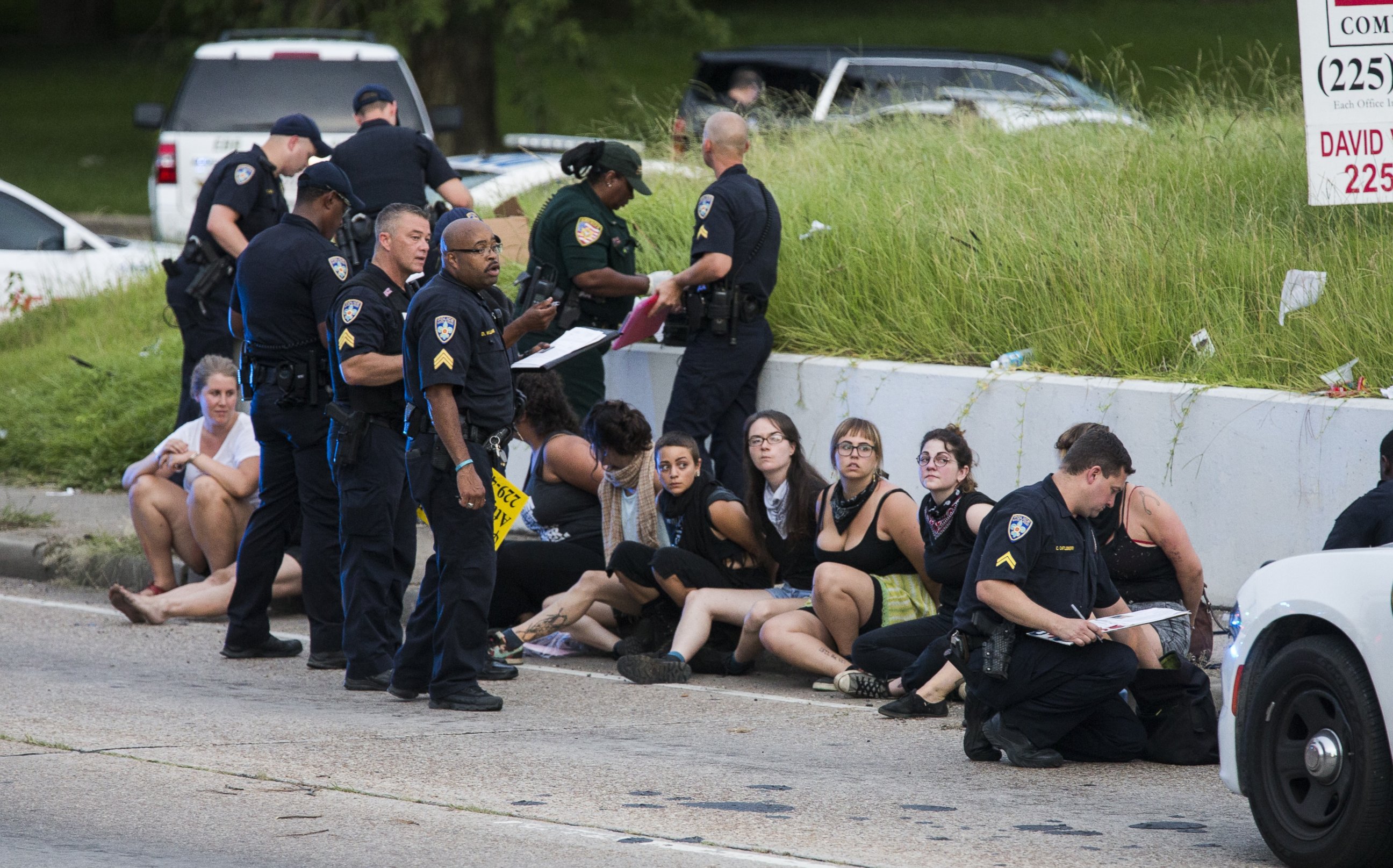
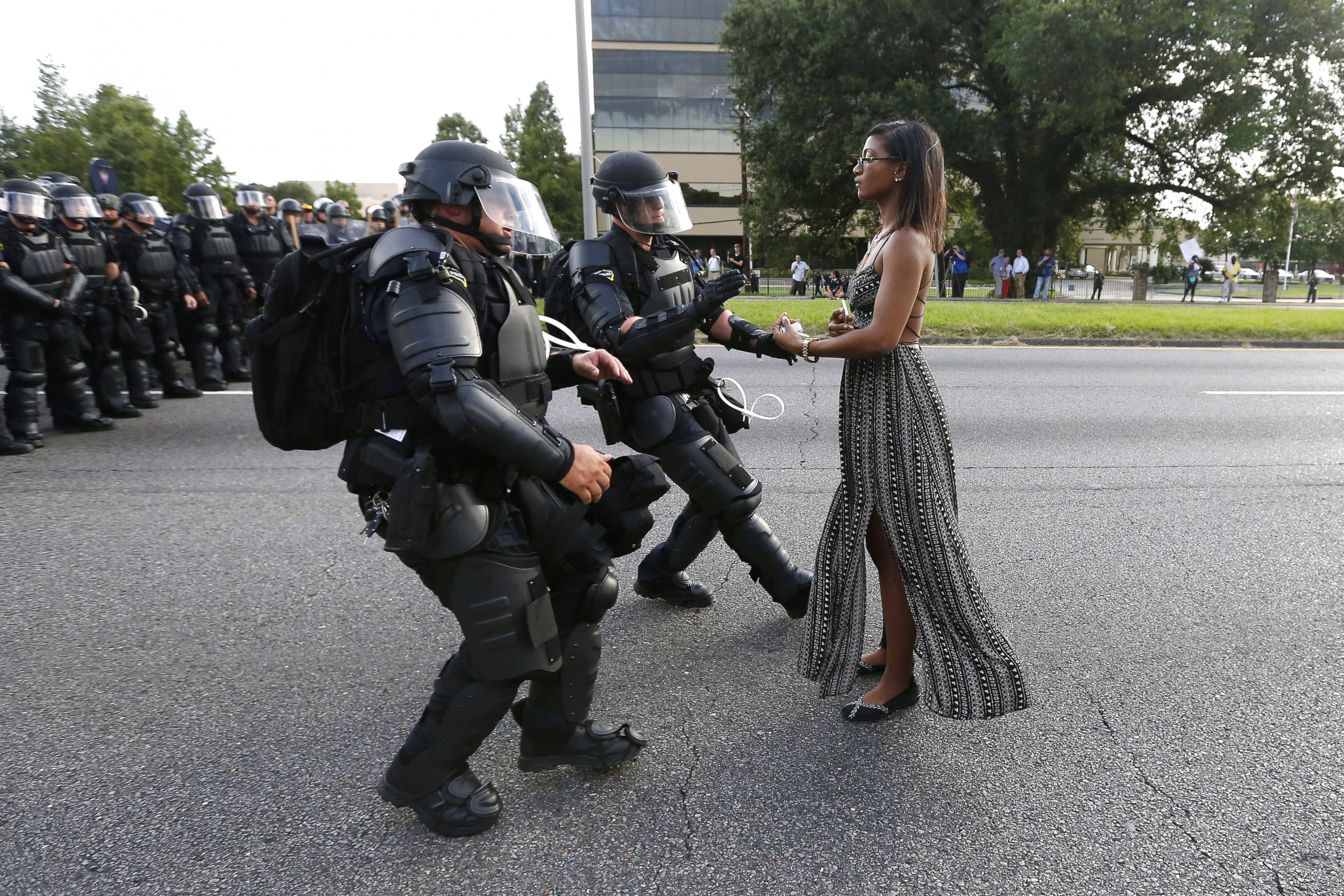
'Building on our better angels'
After a turbulent weekend, the White House announced that President Barack Obama will visit Dallas on Tuesday to memorialize the five police officers killed by a lone gunman angry at white police during an otherwise peaceful protest.
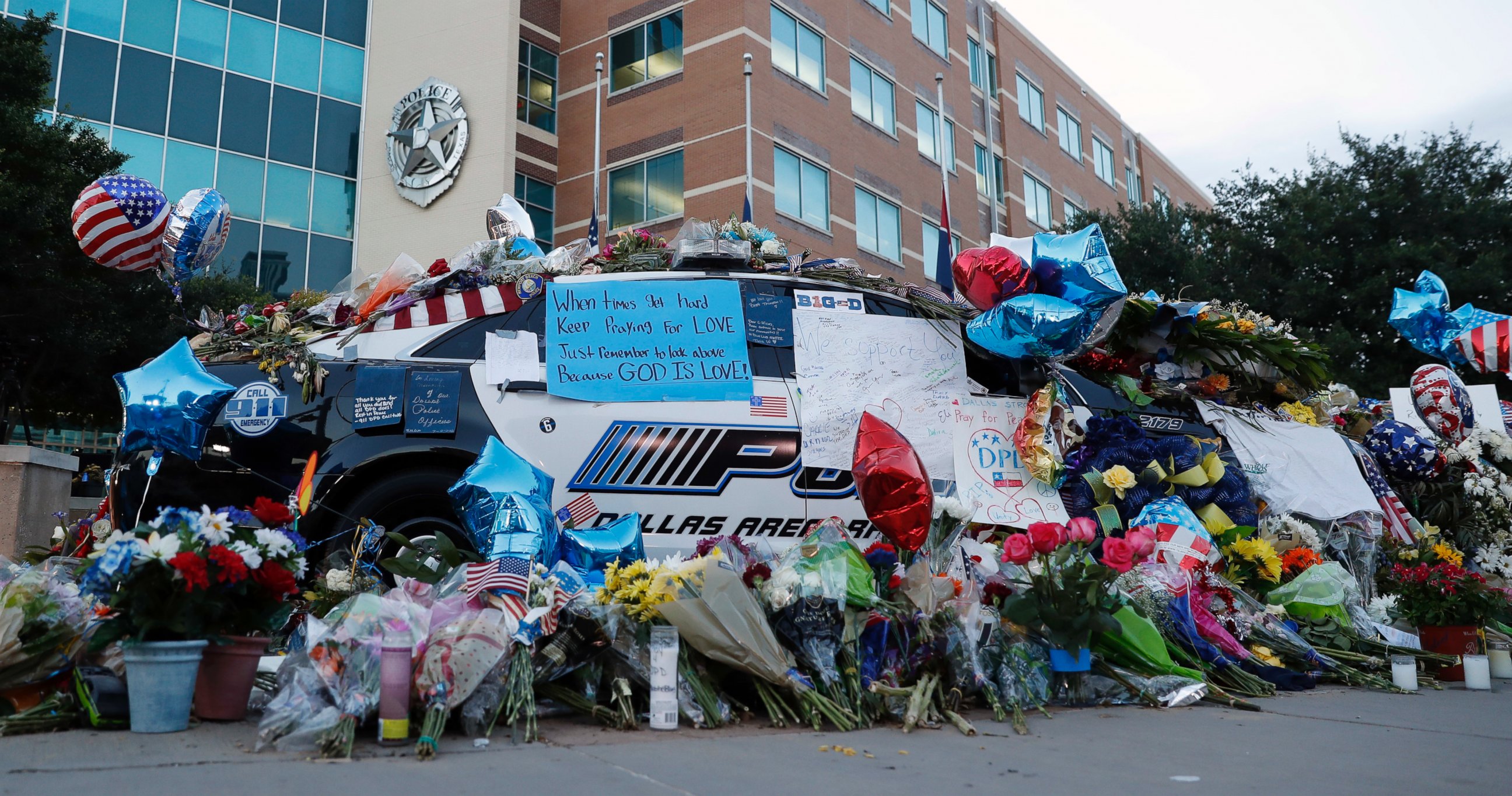
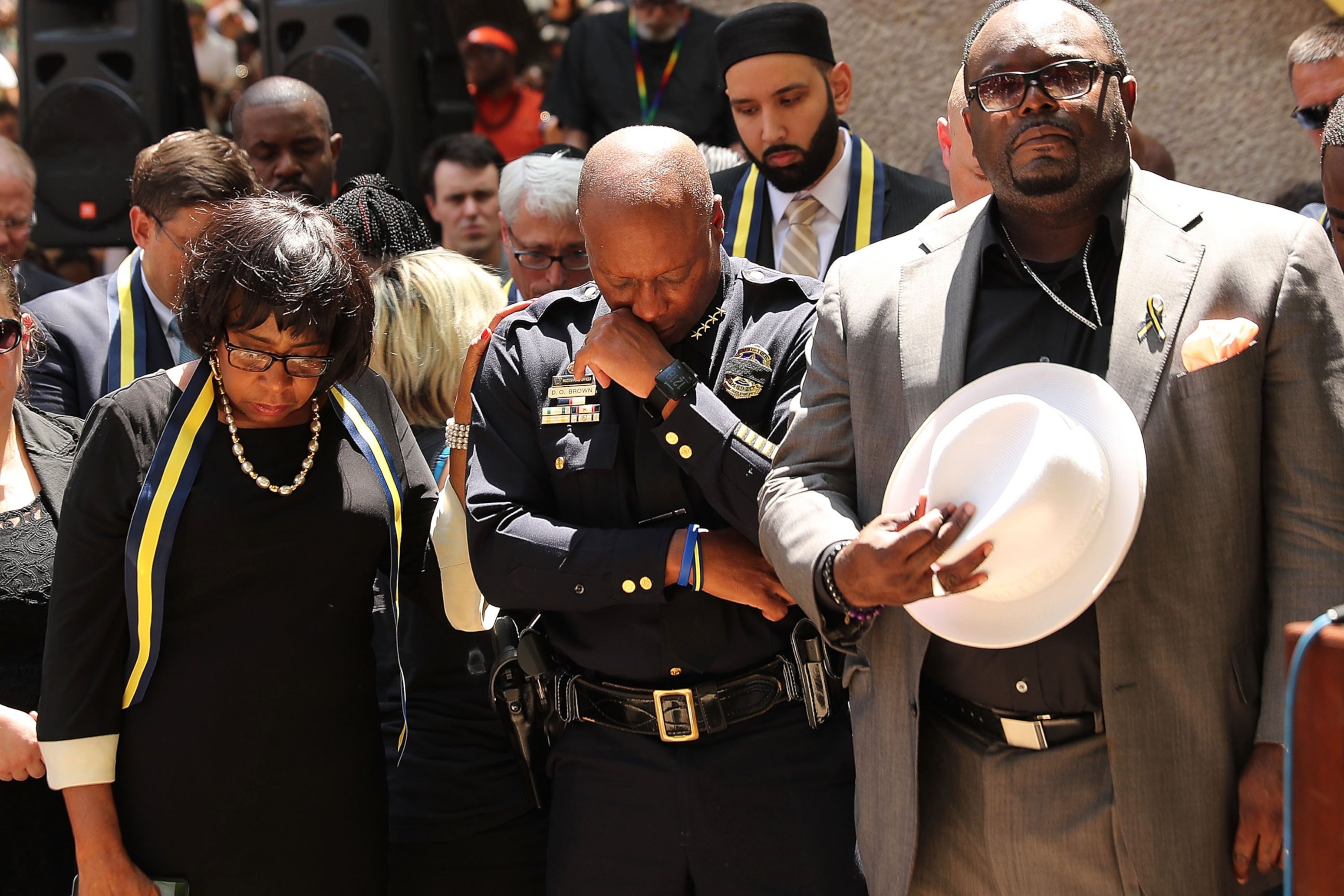
Obama plans to deliver remarks at an interfaith memorial service for the officers. His visit to the grief-stricken city comes at the invitation of Dallas Mayor Mike Rawlings, the White House announced Sunday.
In various statements throughout a visit to Europe for a NATO summit, Obama has looked to downplay headlines depicting an ongoing crisis in America.
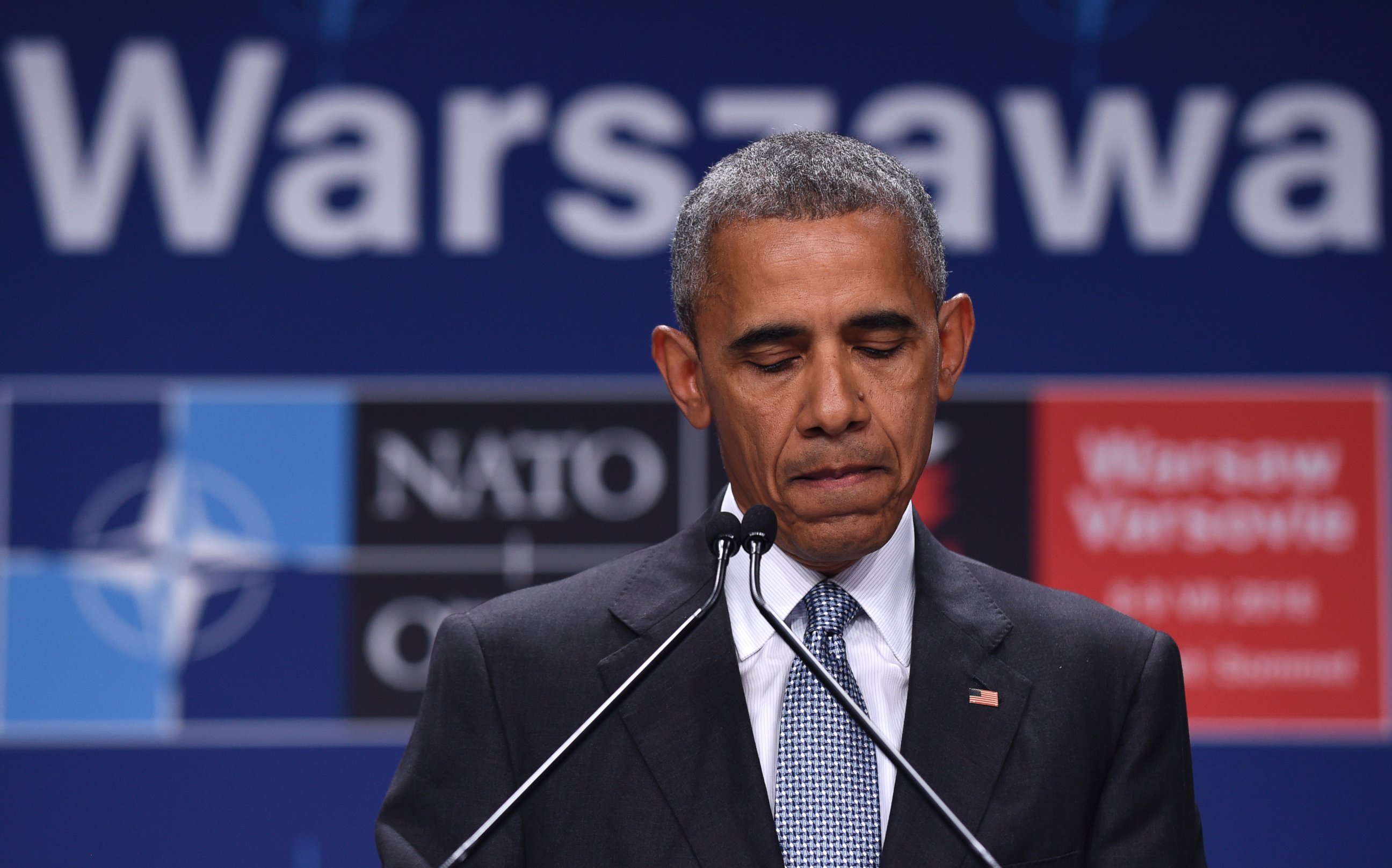
"As tough, as hard, as depressing as the loss of life was this week, we've got a foundation to build on," he said at a press conference Saturday. "We just have to have confidence that we can build on those better angels of our nature."
